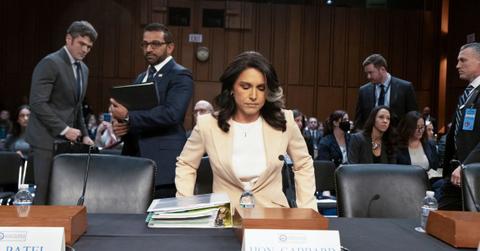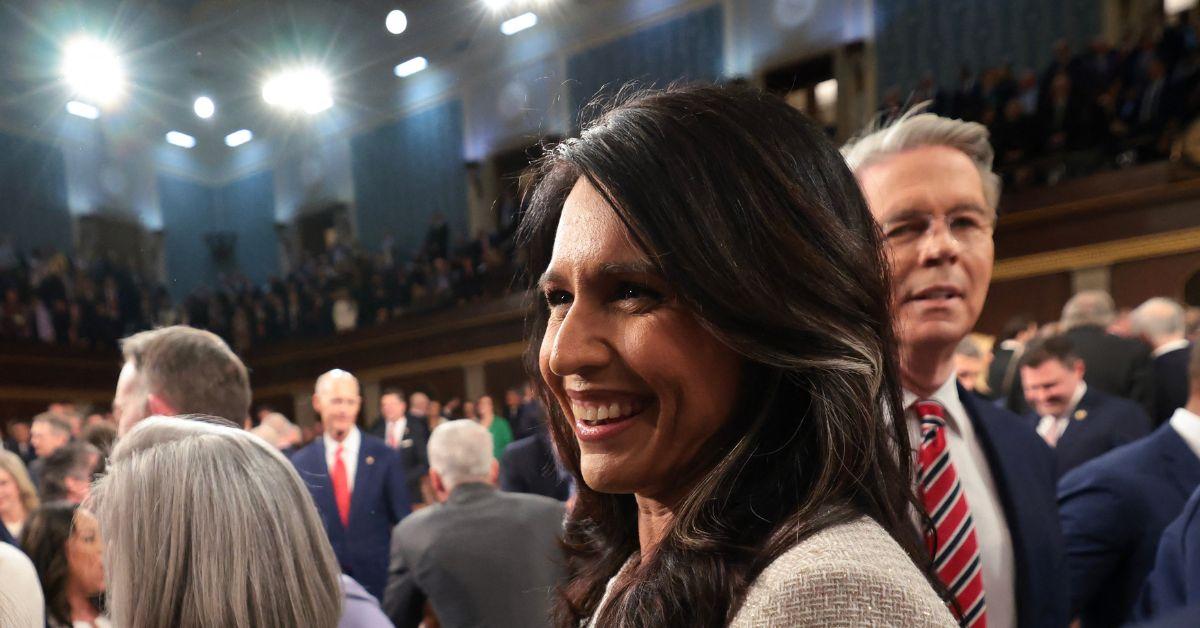Tulsi Gabbard's Political Evolution Is a Mystery to Just About Everyone
Gabbard announced her switch in 2024 after leaving the Democratic Party in 2022.
Published March 26 2025, 2:22 p.m. ET

During the 2016 election and its aftermath, many on the left would have been shocked if you had told them that Tulsi Gabbard would be a part of Donald Trump's second administration. At the time, Gabbard was seen as an iconoclastic leftist, but in the years since, she has gradually evolved, and she formally switched to the Republican Party in 2024.
Much ink has been spilled in an attempt to understand that political transformation. Here's what we know about exactly why Gabbard became a Republican.

Why did Tulsi Gabbard become a Republican?
When Gabbard announced that she was switching parties, she gave her own explanation on why she had made the move.
“I’m joining the party of the people, the party of equality, the party that was founded to fight against and end slavery in this country. It is the party of common sense, and the party that is led by a President who has the courage and strength to fight for peace,” she said.
“You know, I was a Democrat for over 20 years. Today’s Democrat Party is completely unrecognizable,” she continued. “When you look at the party of Kamala Harris, for example, she is anti-freedom. She is pro-censorship, she is pro-open borders, and she is pro-war without even pretending to care about peace.”
That announcement was not a surprise, as Gabbard had become an increasingly vocal opponent of the Biden administration over his time in office.
One of Gabbard's core claims for much of her political life has been her opposition to foreign intervention. She made a name for herself in part by opposing Bush-era foreign policy and became an outspoken critic of the Obama administration as well during her time in Congress.
She always had a populist streak, particularly on economic issues, and she has frequently described Democrats and those aligned with them as "warmongers."
While it's true that the Obama administration did not completely disentangle us from foreign wars and that Biden left the United States in several foreign entanglements, this justification does not, on its face, make a ton of sense.
The Trump administration has been just as interventionist, although its moves have typically aligned it with other autocratic countries around the world.
The image of Trump as a "dove," or someone who is not interested in war, is belied by his first term and by his recent return to office. Even the recent Signal scandal that has rocked the administration is evidence of the ways that Trump and his cabinet have continued to be very aggressive in entangling Americans in wars abroad.
It's possible, then, that Gabbard's move was more crass than philosophical. After sputtering out of the Democratic primary in 2020, she may have decided to switch parties simply because that was the best way to further her career. She has always had iconoclastic beliefs, but there was every little chance that she would become the Director of National Intelligence under any Democratic administration.